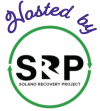March 26, 2021, SACRAMENTO – Despite a growing substance use disorder (SUD) epidemic ravaging the country, the State of California has still not adopted an SUD licensure program for professionals dedicated to helping those suffering from the disease of addiction. While there has been an increase in demand for people attempting to obtain treatment, there unfortunately is a not a large enough, qualified workforce to help out. The California Consortium of Addiction Programs and Professionals (CCAPP) has been the state’s largest and most vocal advocacy organization urging the passage of legislation to create a new license that would allow individuals to seek treatment from individual private practitioners.
Unfortunately, SUD professionals are looked at as paraprofessionals and not as “qualified” or legitimate as physicians and mental health therapists. Therefore, funding for the profession, and specifically the creation of an SUD counselor license, has not been allowed or made a priority. This is a problem for many reasons. The SUD workforce desperately needs to be expanded, especially when many in the industry are getting ready to retire, whilst the demand for treatment increases. However, even if people are inclined to go into the SUD counselor industry, they may not stay because there is no option to work up the career ladder to become licensed. Creating licensure would guarantee the SUD professionals would have the option to earn salaries commensurate with other behavioral health professionals. SUD counselors deserve to have the same prestige, respect and pay level as other health professionals, otherwise known as Licensed Practitioners of the Healing Arts (LPHAs). When this is possible, there will no doubt be in an influx of professionals in this industry to expand the workforce.
Another issue with California not having a SUD counselor licensure, is public safety. Without licensure, anyone is able to open an outpatient program or private practice and give unregulated services to those seeking help. This can lead to vulnerable people, who are trying to get help for their addiction, being victimized or taken advantage of and no one being held accountable for it. This can be detrimental to patients’ lives and lead to additional unethical practices opening.
